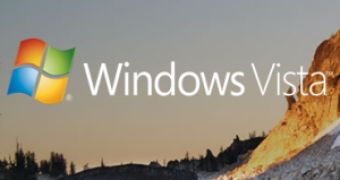Over a year after the general availability of Windows Vista (January 30, 2007), and a year and a half after the business launch of the latest Windows client (November 30, 2006), the product has yet to receive the love forecasted by Microsoft. While predicting nothing short of Wow experiences, it is waking up following the availability of Windows Vista Service Pack 1 to the sound of silence where upgrades from Windows XP to Windows Vista should have been. This realization seems difficult to sink in for the Redmond company.
"During the conference call my team had on Friday, we were discussing the upcoming content we are planning for the August-December timeframe. One of my team members who shall remain nameless stated that most of the customers he has talked to aren't upgrading existing Windows XP machines to Windows Vista. Instead, they are just buying new machines with Windows Vista as the old XP machines roll off the books and are re-purposed, or die," revealed Keith Combs, Microsoft IT Pro Evangelist.
According to statistics provided by Microsoft, Windows Vista had sold in excess of 140 million licenses by March 2008. Data published by Net Applications give Vista a 14.57% share of the operating system market at the end of April 2008. By comparison, Windows XP accounts for a share of 73.07%, down from a high of 85.02% back in January 2007. With worldwide shipments of PCs reaching over 250 million items the past year, it is clear that Vista's growth comes largely from acquisitions of new machines rather than from upgrades.
"None of the security, network, search, etc. improvements warrant an upgrade of an existing machine, even with Aero glass turned off so that it performs on par or better than Windows XP?" Combs asked rhetorically. But the real question was "Is that accurate? Is that what you are doing?" with Combs referring to the customers' failure to upgrade. The comments wrote in response to Combs' post indicate that customers are steering clear of Windows Vista, and sticking to what they already know, namely XP.
The reasons for doing this are multiple, and they are related to the now year old problems of the operating system that caused a barrage of bad publicity. Vista is avoided due to performance issues, compatibility problems, but also the cost of the upgrade, although Microsoft has continually touted that the operating system would deliver a lower TCO in the end. However, the total cost of ownership does not generally include the costs of the upgrade. But one thing is clear: none of the users mentioned Service Pack 3 as the reason why the move to Vista was avoided. At the same time, SP1 for Windows Vista also failed to catalyze a new wave of upgrades to the latest Windows client.
"Are you running mixed environments of old and new machines with each OS? I understand for small and small medium businesses that's unlikely, but what about when you have several hundred PCs up? Are you buying new machines with WinXP or flattening them and installing WinXP? What happens when we stop selling Windows XP in a few weeks?" Combs asked.

 14 DAY TRIAL //
14 DAY TRIAL //